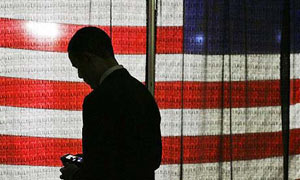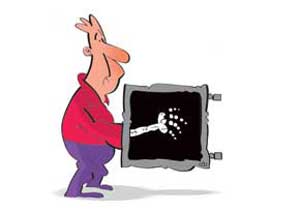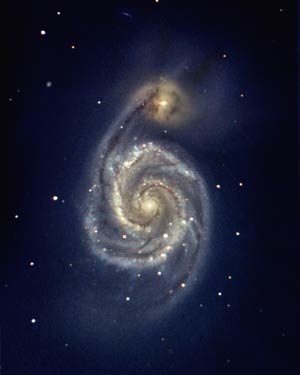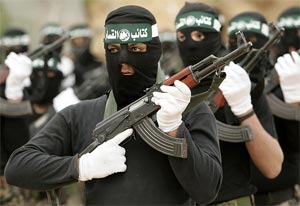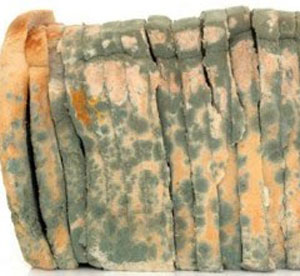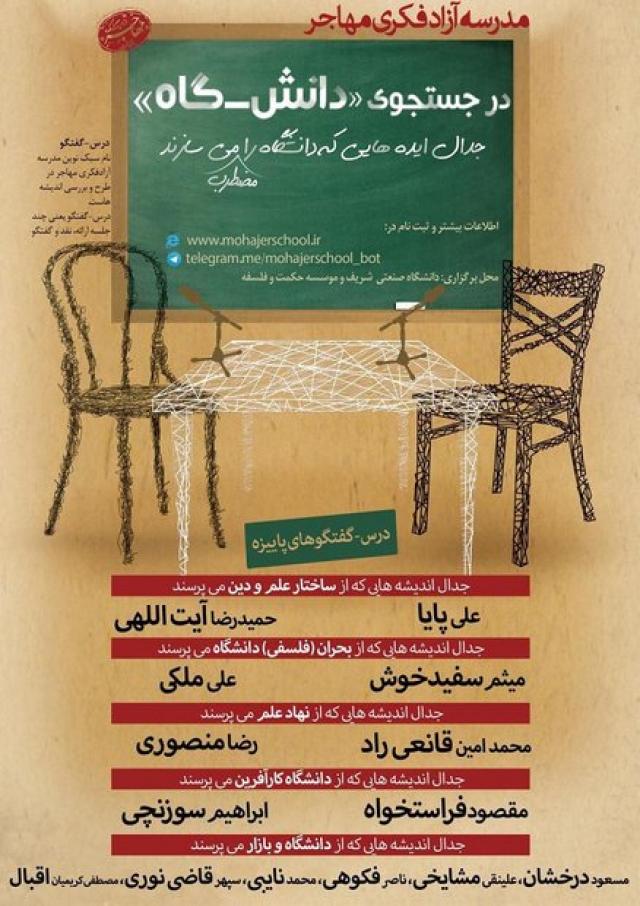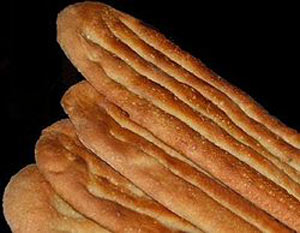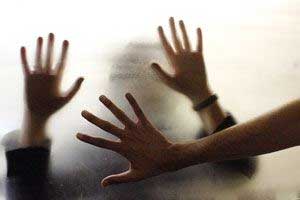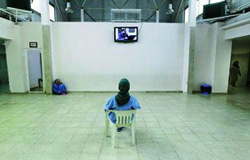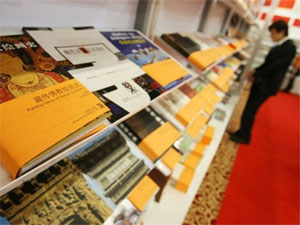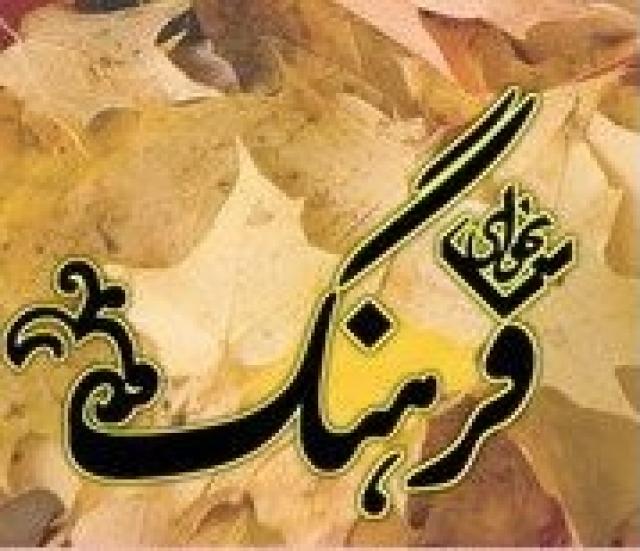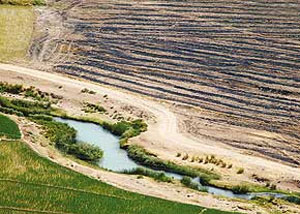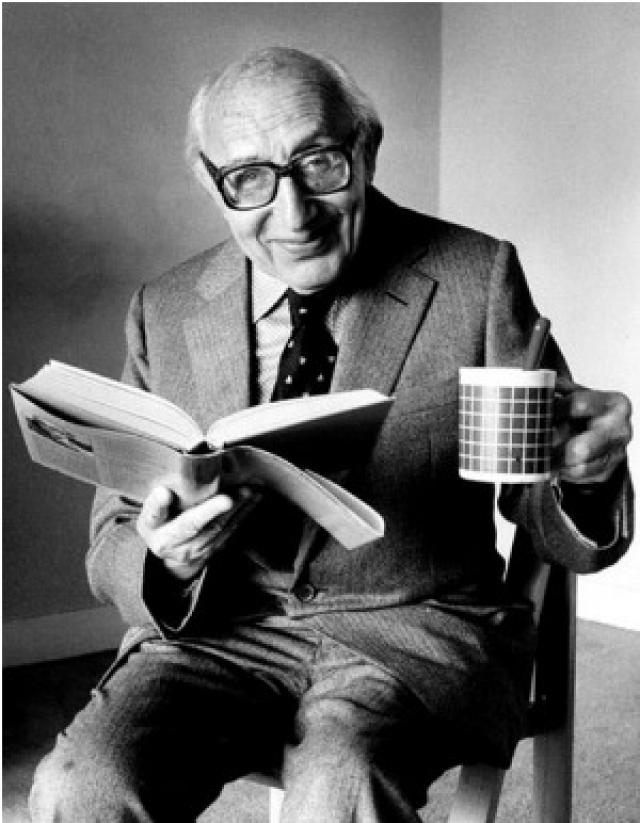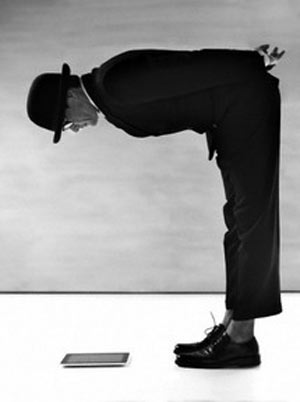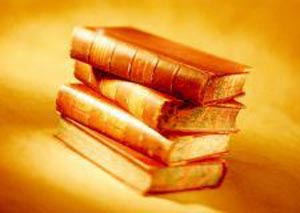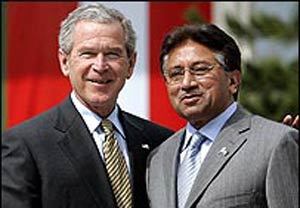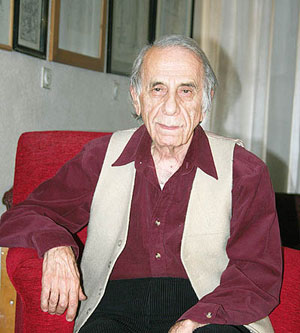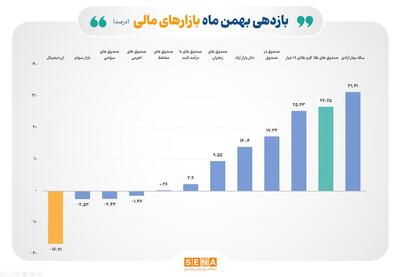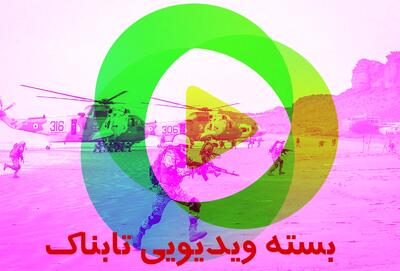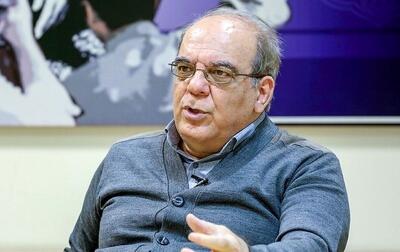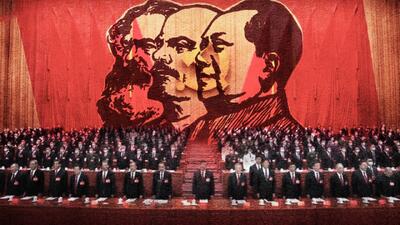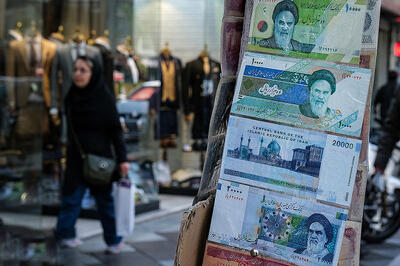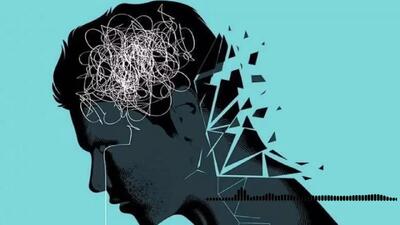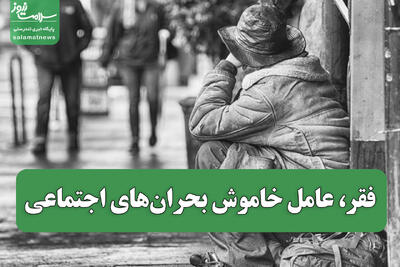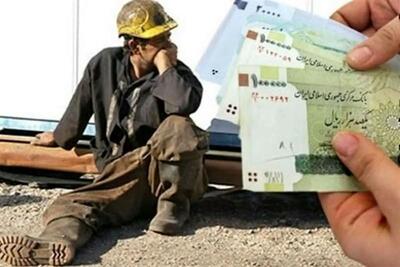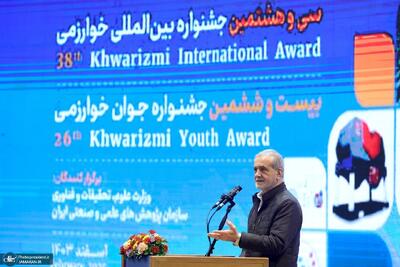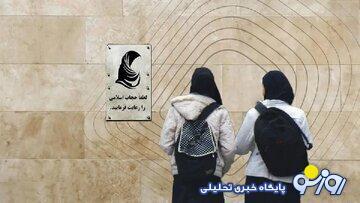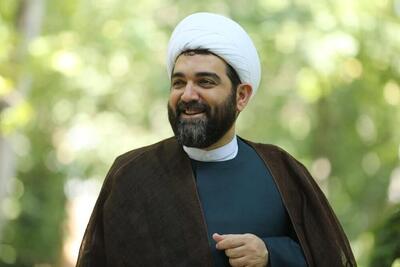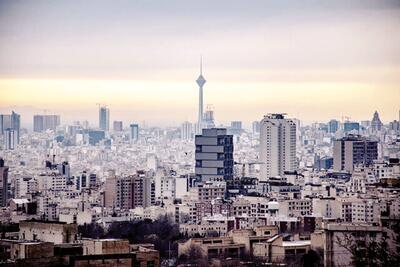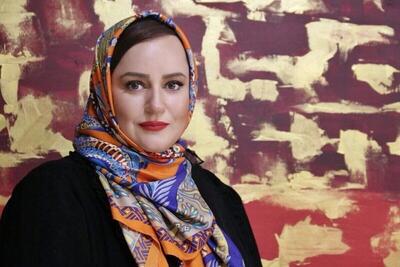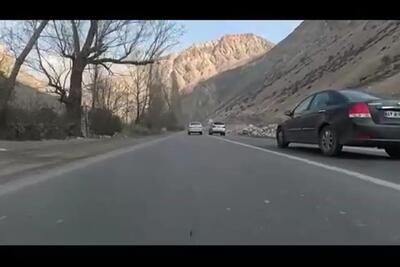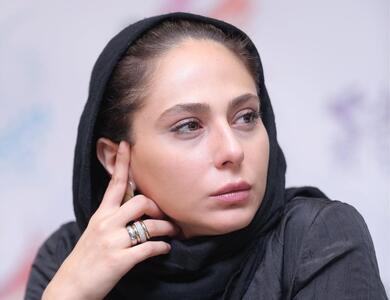دوشنبه, ۶ اسفند, ۱۴۰۳ / 24 February, 2025
گاه شمار تاریخ فرهنگی - سیاسی ایران: 1213- 1384/ 1834- 2005 (5)
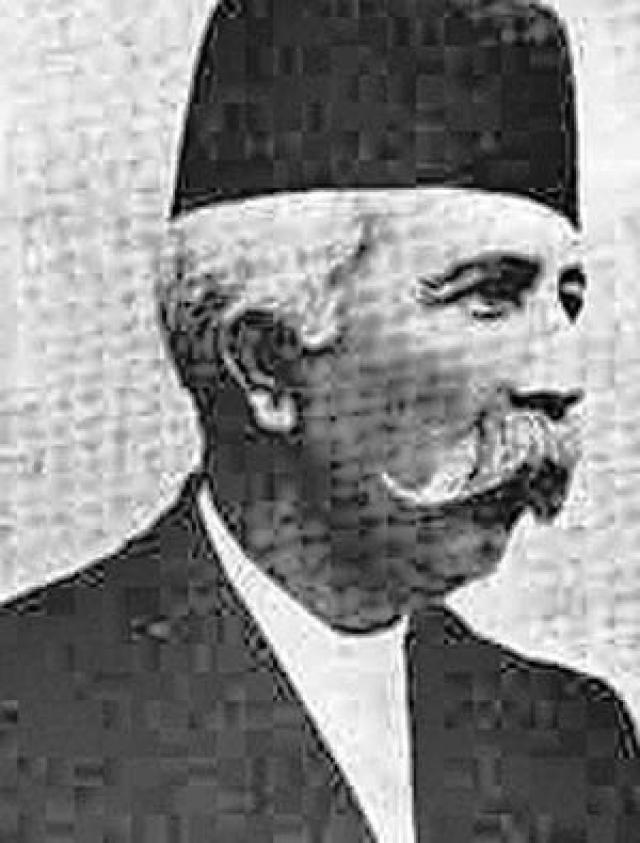
تصویر: مستوفی الممالک
در چارچوب برنامه تاریخ فرهنگی ایران مدرن، انسان شناسی و فرهنگ از جمله اقدام به انتشار گاه شمار های تخصصی و عمومی درباره دوره تاریخ معاصر خواهد کرد. این گاه شمار ها به وسیله کارشناسان انسان شناسی و فرهنگ تالیف و یا به شکل ترجمه از منابع موجود و معتبر تدوین و منتشر خواهند شد. در زیر دومین بخش از گاه شمار تفصیلی دائره المعارف «ایرانیکا» را ملاحظه می کنید. تاریخ های شمسی در ترجمه فارسی افزوده شده و در ابتدا آمده اند (دقت کنید که به دلیل نبود روز شمار، امکان اشتباه کوچکی در حد یک سال، در سال های شمسی وجود دارد). این گاه شمار در بخش های متعدد ارائه خواهد شد. متن انگلیسی هر بخش در پایان همان بخش آورده شده است. داده ها از سایت ایرانیکا در آذرماه 1391 بازیافت شده اند.
بخش پنجم: 1918/ 1297- 1926/ 1305
1297 /1918 - مستوفی الممالک نخست وزیری را بر عهده می گیرد.
1297/ 1918- صمصام السلطنه عهده دار نخست وزیری می شود.
1297/1918 - تشکیل کابینه ی طرفدار انگلیسی حسن وثوق الدوله
1297/1918 - درگذشت لارنس هیورس میلز (Lawrence Heyworth Mills) (متولد 1216/1837)، محقق انگلیسی، استاد زبان فارسی در دانشگاه آکسفورد و نویسنده ی کتاب زرتشت (Zarathustra) ، فلسفه Philo))، هخامنشیان و اسرائیل ((the Achaemenids and Israel (1285/1906).
1297/ 1918- درگذشت والنتین آلکسیویچ ژوکُوسکی (Valentin Alekseevich Zhukovskiĭ) (متولد 1237/1858)، ایران شناس و شرق شناس برجسته ی روس، نویسنده ی کتابهای مفادی برای مطالعه ی گویشهای فارسی (Materialy dlya izucheniya persidskikh narechiĭ) (سه جلد، 1922-1888) و نمونه های ادبیات عامه ی فارسی (1281/1902).
1298/ 1919-دولت ایران هیئتی را به کنفرانس صلح پاریس می فرستد تا تقاضای فسخ قرارداد میان بریتانیا و روسیه که منجر به تقسیم ایران به حوزه ها ی نفوذی می شود را ارائه دهند. بریتانیا با موفقیت از به رسمیت شناخته شدن هیئت اعزامی ایران در کنفرانس جلوگیری کرد.
1298/1919- حسن وثوق الدوله معاهده ی انگلیس-ایران را با لرد کُرزن(Lord Curzon) امضا کرد، معاهده ای که زمینه را برای سازماندهی مجدد ارتش و امور مالی ایران تحت نظارت بریتانیا فراهم آورد؛ این موافقت نامه به شدت از جانب ملی گرایان ایران مورد انتقاد قرار گرفته به گونه ای که مجلس از تشکیل جلسه برای تصویب آن امتناء ورزیده است. گفته می شود که سه تن از اعضای کابینه ی مجلس به نام های حسن وثوق الدوله، فیروز میرزا نصرت الدوله و اکبر میرزا صارم الدوله پیش از امضای معاهده مبلغ مشخصی از بریتانیا دریافت کرده اند. در نگاه عامه این معاهده به عنوان قانون قیمومیتی دیده می شود که بین بریتانیای کبیر و گروه کوچکی از سردمداران ایرانی که مرتکب خیانت شده و کشورشان را به بیگانگان فروخته اند، امضا شده است، اما وثوق الدوله از این توافق نامه دفاع کرده و آن را اقدام پیشگیرانه ی مؤثری در مقابل نفوذ شوروی می داند.
1298/ 1919-مدرسه ی حقوق در وزارت دادگستری تأسیس شد؛ آدلف پرنی (Adolf Preni) اولین رئیس مدرسه ی حقوق بوده و به علاوه مدرسه دارای 5 آموزگار فرانسوی، 6 معلم ایرانی و 30 دانش آموز است.
1298/ 1919- نایب حسین کاشی، فرمانده ی ارتشی قدرتمندی که برای چندین سال باعث ایجاد رعب و وحشت در منطقه ی کاشان شده است، اعدام شد.
1299/ 1920-ایران یکی از اعضای اصلی اتحادیه ی ملل شده و بلافاصله اعتراض رسمی را علیه معاهده ی 1919 ایران-انگلیس اعلام می کند؛ قوانین اتحادیه به نفع ایران است.
1299/1920-شیخ محمد خیابانی (1258/1879)، رهبر سیاسی انقلابی حزب دمکرات، حکومت نیمه مستقلی را در تبریز تشکیل داد.
1299/ 1920- نیروهای بلشویک سربازان بریتانیایی مستقر در بندر انزلی را گلوله باران کرده و این منطقه را به اشغال خود در می آورند؛ ایران شکایتنامه ای را تسلیم اتحادیه ی ملل می کند.
1299 /1920- میرزا کوچک خان و احسان الله خان (یک رهبر چپ گرا) با کمک ارتش سرخ رشت را اشغال می کنند و دولت انقلابی را تشکیل می دهند.
1299/1920-یک گروه کمونیست (عدالت) در انزلی شکل گرفته است.
1299/1920-میرزا حسن خان مشیر الدوله نخست وزیر می شود.
1299/1920-نیروهای کمونیست به رهبری احسان الله خان جمهوری اتحاد جماهیر شوروی ایران را در رشت تشکیل می دهند. میرزا کوچک خان نسبت به این حرکت معترض است، بنابراین از احسان الله خان جدا شده و به سمت جنگل عقب نشینی می کند.
1299/1920-نیروهای قزاق شهر رشت را از ارتش سرخ آزاد می کنند.
1299/1920-مخبرالسلطنه حاکم آذربایجان می شود.
1299/1920- کشته شدن محمد خیابانی توسط نیروهای قزاق.
1299/ 1920-فتحعلی خان اکبر به نخست وزیری منصوب شده و عنوان سپهدار اعظم به وی اعطا می شود.
1299/1920- درگذشت مارسل اوگوست دیولافوا (Marcel-Auguste Dieulafoy) (1223/1844)، باستان شناس فرانسوی، همسر باستان شناس، سیاح و نویسنده، جین دیولافوا (Jane Dieulafoy) و نویسنده ی کتاب هنر باستانی ایران (L’art antique de la Perse) (سه جلد، 85-1884).
1299/1920- درگذشت ارنست کوهن (Ernst Kuhn) (1225/1846)، واژه شناس آلمانی، کارشناس زبان سانسکریت، اوستایی، فارسی میانه و باستان، همراه با ویلهلم گایگر (Wilhelm Geiger) نویسنده اثر مهمی با عنوان طرح اساسی زبانشناسی فارسی (L’art antique de la Perse) ( 2 جلد، 1283-1274/ 1904-1895).
1299/1920- درگذشت ایتالو پیزی (Italo Pizzi) (1228/1849)، شرق شناس ایتالیایی، پژوهشگر ادبیات فارسی، ترجمه ی گزیده هایی از شاهنامه ی فردوسی به زبان ایتالیایی با عنوان گلچین ادبی از فردوسی ((Antologia firdusiana (1270/1891)، نویسنده ی کتابهای راهنمای ادبیات فارسی (Manuale di litteratura Persiana) (1266/1887) و داستان شعر فارسی (Storia della poesia Persiana) (دو جلد، 1273/1894).
1300/1921-دیدار ژنرال سر ادموند آیرونساید ((Edmund Ironside با فرمانده ی تیپ قزاق، رضا خان میر پنج ( رضا شاه بعد از این)، در قزوین، آنان در مورد تمایل برای برپایی کودتا بحث کرده اند.
1300/1921- سید ضیاء الدین طباطبایی، ناشر روزنامه ی حزب توده رعد، به همراه رضا خان میر پنج، فرمانده ی تیپ قزاق در قزوین، کودتا را سازماندهی کرده و بدون خونریزی تهران را به اشغال خود در می آورند.
1300/1921- به فرمان احمد شاه سید ضیاء الدین به عنوان نخست وزیر و رضا خان به عنوان فرمانده ی کلیه ی نیروهای ارتشی و قدرت اصلی کابینه و پس از این وزیر جنگ، منصوب می شوند.
1300/1921- نخست وزیری احمد قوام السلطنه
1300/1921- کلنل محمد تقی خان پسیان، فرمانده ی شناخته شده ی ژاندارمری خراسان با شهرتی به خاطر درستکاری و میهن پرستی، کسی که حکومت نیمه مستقلی را در خراسان شکل داد و تمایل داشت جمهوری خراسان را ایجاد کند، در نبرد با نیروهایی که از سوی رضا خان فرستاده شده بودند، کشته شد.
1300/1921- درگذشت سید محمد طباطبایی، یکی از رهبران انقلاب مشروطه
1300/1921- شکست میرزا کوچک خان و نیروهای کمونیست در گیلان توسط رضا خان
1300/1921- ایران و اتحاد جماهیر شوروی معاهده ای را امضا می کنند که بر اساس آن تمامی امتیازات و انحصاراتی که پیش از این مرتبط با روسیه بود، فسخ شده محسوب می شود. بر طبق بند 21 معاهده، شوروی حق این را دارد که در صورت اشغال ایران توسط کشور دیگر نیروهای نظامی خود را عازم ایران کند.
1300/1921- بنیانگذاری مرکزمذهبی قم (حوزه ی علمیه) توسط آیت الله عبدالکریم حائری یزدی.
1300/1921- درگذشت اینیاک گلدزیهر (Ignac Goldziher) (1229/1850)، اسلام شناس و شرق شناس برجسته ی مجارستانی، نویسنده ی کتابهای مطالعات اسلامی (Muhammedanische Studien) (دو جلد، 1269-1268/90-1889 ترجمه ی انگلیسی 1967/ ) ، 1346/1967) و «اسلام گرایی و پارسیسیم» در گاهنامه، از از سی. باربر و اس. ام. استرن (C. Barber and S. M. Stern) (1901/1280 )
(1302-1300/ 23-1921- چهارمین دوره ی مجلس
1304-1300/ 25-1921- سازماندهی مجدد و استحکام ارتش توسط رضا خان به عنوان پشتوانه ی قدرتش، آغاز برنامه ی آرام سازی کشور و همچنین تعدادی از اصلاحات مدیریتی.
1301/ 1922- نخست وزیری مشیر الدوله
1301/ 1922- سرگرد ابوالقاسم لاهوتی، فرمانده ی انقلابی ژاندارمری ناحیه ی تبریز و شاعر برجسته ، بر علیه رضا خان شورش می کند ولی این قیام سرکوب شده و لاهوتی به اتحادیه ی جماهیر شوروی می گریزد.
1301/ 1922- شفق سرخ، روزنامه ی آزادی خواه و اصلاح طلب توسط علی دشتی و با همکاری شماری از اندیشمندان بنیانگذاری شده است؛ آخرین شماره در سال 1935 انتشار یافته.
1301/ 1922- شورای عالی آموزش و پرورش برای نظارت بر شمار زیاد مدارس مدرن شکل می گیرد.
1301/ 1922- نخست وزیری احمد قوام السلطنه
1301/ 1922- اسماعیل آقا سمیتقو، رئیس شورشی قبیله ی کردی که برای مدتی بر آذربایجان غربی تسلط یافته بود، شکست خورده و به سمت خاک ترکیه عقب نشینی می کند.
1301/ 1922- دکتر آرتور سی. میلسپاگ ((Arthur C. Millspaugh، کارشناس آمریکایی امور مالی، توسط ایران جهت سازماندهی امور مالی این کشور به خدمت گرفته می شود؛ اختیارات گسترده ای به وی داده می شود.
1301/ 1922- قانون مدیریت اجتماعی برای اصلاح نمایندگی های عمومی به تصویب مجلس رسیده است.
1304-1301/ 25-1922- رضاخان از طریق راه حل قطعی و با کمک افسران قابل اعتماد قزاقش، ناآرامی های قبیله ای در آذربایجان، لرستان، کردستان و فارس را خنثی می کند.
1302 / 1923- گشایش مؤسسه ی پاستور در تهران
1302 / 1923- نخست وزیری موستوفی الممالک
1302 / 1923- نخست وزیری مشیر الدوله
1302 / 1923- نخست وزیری رضاخان سردار سپه
1302 / 1923- احمد شاه ایران را به مقصد اروپا ترک می کند و هیچگاه بازنمی گردد.
1302 / 1923- امپراطوری عثمانی از متصرفات خود به جز ترکیه محروم شده و کمال آتاتورک (Kemal Ataturk) به ریاستِ جمهوری جدید ترکیه که مورد حمایت گروه ترکان جوان است، منصوب می شود. متصرفات عربی پیشین امپراطوری عثمانی توسط انگلیس و فرانسه که بر اتحادیه ی ملل تسلط دارند به چندین کشور مستقل همچون عراق، اردن، سوریه، لبنان، فلسطین، مراکش، تونس و الجزایر، تقسیم شده اند و هر یک از این کشورها در قیمومیت فرانسه یا انگلیس هستند.
1302 / 1923- درگذشت پیر لوتی (Pierre Loti) (1229/1850)، رمان نویس و سیاح فرانسوی و نویسنده ی کتاب به سوی اصفهان (Vers Ispahan) (1283/1904).
1303 / 1924- جنبشی ملهم از تغییر رژیم در ترکیه جهت براندازی حکومت شاهنشاهی و ایجاد حکومت جمهوری به ریاست رضاخان، برپا شده است. اگرچه ترس علما از احساسات ضد مذهبی در رژیم جمهوری خواه ترکیه سبب گسترش اعتراضاتی بر علیه اینچنین تغییری شده است، اما کشیش ها مدافع ایده ی انتخاب رضاخان به عنوان شاه هستند.
1303 / 1924- درگذشت علی اکبر خان ناطم الاطبا، پزشک ایرانی، پدر سعید نفیسی و نویسنده ی کتاب فرهنگ نفیس.
1303 / 1924- درگذشت ظهیر الدوله، حکمران، وزیر دربار، مشروطه خواه آزادی طلب، سوفی و پایه گذار و رهبر روحانی انجمن اخوت (انجمن برادری).
1303 / 1924- به قتل رسیدن سید محمد رضا میرزاده ی عشقی، شاعر، روزنامه نگار، فعال سیاسی و هجو نویس، ناشر مجله ی قرن بیستم و نویسنده ی نمایش نامه ی شعرگونه ی آرمان دهقان در سه پرده، به ضرب گلوله ی قاتلی که گفته می شود از طرف دولت اجیر شده.
1303 / 1924- قتل سرگرد رابرت ایمبری (Robert Imbrie)، ژنرال مشاور سفارتخانه ی آمریکا؛ دولت از این واقعه به عنوان دستاویزی برای تحمیل قانون نظامی و دستگیری رهبران مخالف، استفاده می کند.
1303 / 1924- رضا خان شیخ خزعل، ((Shaikh Ḵazʿal، حاکم غیر رسمی خوزستان، را از قدرت خلع می کند، منطقه را بازپس گرفته و مانع اصلی برای تمامیت ارضی ایران را از بین می برد.
1303 / 1924- درگذشت ژاک مورگان (Jacques de Morgan) (1236/1857)، باستان شناس، زمین شناس، مهندس اجتماعی و نویسنده ی کتابهای مأموریت علمی در قفقاز(Mission scientifique au Caucase) (دو جلد،1268 /1889)، مأموریت علمی در ایران (Mission scientifique en Perse) (5 جلد، 83-1273/ 1904-1894)، تاریخ و محل کار هیئت ایرانی (Histoire et travaux de la délégation en Perse) ، 1284-1276/1905-1897 (1905) و سیستم دستی سکه شناسی شرقی در دوران باستان و قرون وسطی (Manuel de numismatique Orientale de l’antiquité et du moyen-âge) (1315-1302/36-1923).
1305-1303 / 26-1924- دوره ی پنجم مجلس
1924-26 Term of the fifth Majles.
1304 / 1925- لغو سمتهای رده بالای ارتشی و تمامی عناوین غیر نظامی سنتی (خان، بِی، میرزا، امیر و ...) و تصویب اجباری نامهای خانوادگی.
1304 / 1925- مجلس قانونی را مبنی بر تغییر ماههای تقویم از عربی و قمری به ایرانی و خورشیدی، به تصویب می رساند.
1304 / 1925-برای حمایت از ساخت سیستم راه آهن ترنس ایران، تجارت شکر انحصاری می شود.
1304 / 1925-مجلس قانون خدمت سربازی اجباری را تصویب می کند، این قانون به طور گسترده ای از جانب علما که آن را به عنوان نشانه ای از تأثیر فزاینده ی جامعه ی سکولار می بینند مورد انتقاد قرار می گیرد.
1304 / 1925-مجلس برکناری احمد شاه را تأیید می کند. افراد معترضی که این حرکت را بر خلاف قانون مشروطیت می دانند از جمله سید حسن تقی زاده، محمد مصدق، حسین اعلی و سید حسن مدرس هستند.
1304 / 1925- درگذشت حاج سیاح (فرزند میرزا محمد علی محلاتی، 1836)، اولین ایرانی – آمریکایی، جهانگرد، مشروطه خواه، فعال حقوق بشر، کسی که در سن 23 سالگی عازم سفر به دور دنیا شد که 18 سال به طول انجامید و نویسنده ی کتاب سفرنامه ی حاج سیاح به فرنگ (1984).
1304/1925-رضا خان از جانب مجلس مشروطه به عنوان شاه انتخاب شد و نام خاندان پهلوی را برگزید.
1304 / 1925-نخست وزیری محمد علی فروقی
1304 / 1925-آغاز انتشار مجله ی آینده در جولای به ویراستاری بنیانگذار ملی گرای خود؛ دکتر محمود افشار
1304 / 1925-درگذشت لرد جرج نتانیل کرزن (Lord George Nathaniel Curzon) (1859)، دولتمرد بریتانیایی، امپریالیست، محقق، سیاح و نویسنده ی کتاب بسیار مهم پرسش ایران و ایرانی (Persia and the Persian Question) (دو جلد، 1892).
1304 / 1925- درگذشت لوئیس چارلز کاسارتلی (Louis Charles Casartelli) (1852)، محقق انگلیسی زبانها و ادیان ایرانیان باستان، استاد زبان ایرانی در دانشگاه منچستر و نویسنده ی کتاب فلسفه ی دین مزداییسم در زمان حکومت ساسانیان (La philosophie religieuse du Mazdéisme sous les Sassanides) (1245/1884).
1304 / 1925-درگذشت کریستیان بارتلوما (Christian Bartholomae) (1246/1885)، محقق آلمانی برجسته در مطالعات ایرانی و هندواروپایی، استاد فلسفه ی تطبیقی و زبان سانسکریت در دانشگاه هایدلبرگ، نویسنده ی مهمترین و تأثیر گذارترین لغت نامه ی زبانهای ایران باستان، فرهنگ لغت ایران باستان ((Altiranischen Wörterbuch (1283/1904)، نویسنده ی کتابهای تاریخچه ی زبانهای ایرانی ((Vorgeschichte der iranischen Sprachen (1274/1895) و زبان اوستایی و ایران باستان (Awestasprache und Altpersische) (1275/1896)، نویسنده ی دو کتاب طرح طبقه بندی واژه شناسی ایرانی (Grundriss der iranischen Philologie) و زن در قانون ساسانیان (Die Frau im sasanidischen Recht) (1301/1924).
1308-1304 / 29-1925- ارتش ایران در جهت تحت کنترل در آوردن قبایل قشقایی بر علیه آنان صف آرایی می کند.
1305 / 1926- آغاز انتشار روزنامه ی مهم و ماندگار اطلاعات توسط عباس مسعودی در تاریخ 10 ژوئیه؛ این روزنامه در سال 1358/1979 به نظام اسلامی اختصاص یافت.
1305 / 1926- شکل گیری اتاق بازرگانی به سرپرستی حاج حسین آقا مهدوی امین الضرب، توسط دولت.
1305 / 1926-شروع خدمت اجباری که بر اساس آن هر سرباز باید دو سال کامل خدمت کند.
1305 / 1926-گشایش سیستم تلفن مرکزی تهران.
1305 / 1926-درگذشت غلام حسین درویش خان (1251/1872)، آهنگساز، معلم نامدار و استاد موسیقی کلاسیک ایرانی.
1305 / 1926- درگذشت ادوارد گرانویل براون (Edward Granville Browne) (1241/1862)،محقق برجسته ی انگلیسی در ادبیات، تاریخ و فرهنگ ایرانی، تاریخ نویس مشهور جنبش بابی، حامی سرسخت مشروطه خواهی و آزادی در ایران، نویسنده ی کتابهای یک سال در میان ایرانیان (A Year Amongst the Persians) (1272 /1893)، تاریخ ادبی ایران ((A Literary History of Persia (4 جلد،1303 -1281/24-1902) و انقلاب ایران در سالهای (89) 88-1284/ (1910)1909-1905 (The Persian Revolution of 1905-1909 ) ، ویراستار بخشی از متنهای بابی و مترجم کتاب مقاله ی شیخ سیاح عبدالبها (Abd-al-(Bahā’s Maqāla-ye šaḵṣi sayyāḥ که با عنوان سفرنامه (A Traveller’s Narrative )ترجمه شده، 1891).
1305/1926- درگذشت گرترود مارگارت لوسیان بل (Gertrude Margaret Lowthian Bell) (1247/1868)، سیاح، باستان شناس، نویسنده و شاعر انگلیسی، نویسنده ی کتابهایی در باره ی مسافرت با عناوینِ سفرنامه (Safar Nameh)، تصویر ایران (Persian Pictures)، کتابی در مورد سفر (A book of Travel) (1273/1894) و ترجمه ی شعرگونه ای از حافظ با عنوان اشعاری از دیوان حافظ (Poems from the Divan of Hafiz) (1276/1897).
1305 / 1926- درگذشت جین باپتیست فوریر (Jean-Baptiste Feuvrier) (1221/1842)، پزشک نظامی فرانسوی، پزشک شخصی ناصرالدین شاه (1268-1271/92-1889) و نویسنده ی کتاب سه سال در دربار ایران ((Trois ans à la cour de Perse (1272/1900).
1305 / 1926- درگذشت کلمان هوار (Clément Huart) (1233/1854)، شرق شناس فرانسوی، ویراستار و مترجم منابع عربی، ایرانی و ترکی که مرتبط با مطالعات ایران هستند، منابعی همچون مذهب باب (La religion de Bab) (1271/1889) و دستور زبان ابتدایی فارسی ((Grammaire élémentaire de la langue persane (1271/1899).
1305 / 1926- دوره ی ششم مجلس
1918 Mostawfi-al-Mamālek assumes the premiership.
1918 Ṣamṣām-al-Salṭana assumes the premiership.
1918 Formation of the pro-British cabinet of Ḥasan Woṯuq-al-Dawla.
1918 Lawrence Heyworth Mills (b. 1837), British scholar, professor of Persian language at Oxford University, and author of Zarathustra, Philo, the Achaemenids and Israel (1906), dies.
1918 Valentin Alekseevich Zhukovskiĭ (b. 1858), prominent Russian Orientalist and Iranologist, author of Materialy dlya izucheniya persidskikh narechiĭ (Materials for the study of Persian dialects, 3 vols., 1888-1922) and Obraztsy persidskikh narodnago tvorchestva (Specimens of Persian popular literature, 1902), dies.
1919 The Persian government sends a delegation to the Paris Peace Conference demanding the repeal of the 1907 Agreement between Britain and Russia that led to Persia’s division into spheres of influence. The British successfully prevent the recognition of the Persian delegation at the Conference.
1919 Ḥasan Woṯuq-al-Dawla signs an agreement with Lord Curzon, known as the Anglo-Persian Agreement, which provides for the reorganization of the Persian army and finances under the British; it is widely opposed in Persia by the nationalists, with the Majles refusing to convene to ratify it. Three members of the Cabinet, Ḥasan Woṯuq-al-Dawla, Firuz-Mirzā Noṣrat-al-Dawla, and Akbar-Mirzā Ṣārem-al-Dawla allegedly receive a certain sum from the British before signing the agreement. It is seen by the public as a protectorate act signed between Great Britain and a small group of Persian statesmen who have committed treason and sold their country to foreigners, but Woṯuq-al-Dawla defends the Agreement as an effective measure against Soviet penetration.
1919 The School of Law is established at the Ministry of Justice; Adolf Preni serves as its first Dean, with five French instructors, six Persian instructors, and 30 students.
1919 Nāyeb Ḥosayn Kāši, a powerful warlord who terrorized the Kashan region for several years, is executed.
1920 Persia becomes one of the original members of the League of Nations and immdiately protests the Anglo-Persian Agreement of 1919; the League rules in favor of Persia.
1920 Shaikh Moḥammad Ḵiābāni (b. 1879), a rebellious political leader of the Democrat Party, forms a semi-independent government in Tabriz.
1920 Bolshevik forces bombard British contingents and occupy the port of Anzeli; Iran lodges a complaint with the League of Nations.
1920 Mirzā Kučak Khan and Eḥsān-Allāh Khan (a leftist leader) occupy Rasht with the help of the Red Army and form a revolutionary government.
1920 A Communist Party (ʿAdālat) is formed in Anzeli.
1920 Mirzā Ḥasan Khan Mošir-al-Dawla assumes the premiership.
1920 Communist forces headed by Eḥsān-Allāh Khan form the Soviet Republic of Iran in Rasht. Mirzā Kučak Khan protests this move, separates from Eḥsān-Allāh Khan, and retreats to the forest.
1920 Cossack forces liberate the city of Rasht from the Red Army.
1920 Moḵber-al-Salṭana assumes the general governorship of Azerbaijan.
1920 Moḥammad Ḵiābāni is killed by Cossack forces.
1920 Fatḥ-Allāh Khan Akbar assumes the premiership and is granted the title of Sepahdār-e Aʿẓam.
1920 Marcel-Auguste Dieulafoy (b. 1844), French archeologist, husband of the archeologist, traveler, and writer, Jane Dieulafoy, and author of L’art antique de la Perse (3 vols., 1884-85), dies.
1920 Ernst Kuhn (b. 1846), German philologist, expert in Sanskrit, Avestan, Old and Middle Persian, editor, with Wilhelm Geiger, of the major publication Grundriss der iranischen Philologie (2 vols., 1895-1904), dies.
1920 Italo Pizzi (b. 1849), Italian Orientalist, scholar of Persian literature, translator of selections of Ferdowsi’s Šāh-nāma into Italian as Antologia firdusiana (1891), author of Manuale di litteratura Persiana (1887), and Storia della poesia Persiana (2 vols., 1894), dies.
1921 The meeting of Major General Sir Edmund Ironside with the commander of the Cossack Brigade, Reżā Khan Mirpanj (later Reżā Shah), in Qazvin, where they discuss the desirability of staging a coup d’état.
1921 Sayyed Żiāʾ-al-Din Ṭabāṭabāʾi, publisher of the populist Raʿd newspaper, together with Reżā Khan Mirpanj, commander of the Cossack Brigade in Qazvin. organize a coup d’état and capture Tehran without bloodshed.
1921 Sayyed Żiāʾ-al-Din Ṭabāṭabāʾi is appointed prime minister by Aḥmad Shah, with Reżā Khan as the Commander-in-Chief of the Armed Forces and the real power in the Cabinet, soon thereafter becoming minister of war.
1921 Aḥmad Qawām-al-Salṭana assumes the premiership.
1921 Colonel Moḥammad-Taqi Khan Pesiān, a popular commander of the gendarmerie of Khorasan with a reputation for honesty and patriotism, who had formed a semi-independent government there and who aspired to form the Republic of Khorasan, is killed in a battle with forces sent by Reżā Khan.
1921 Sayyed Moḥammad Ṭabāṭabāʾi, one of the two leading figures of the Constitutional Revolution, dies.
1921 Reżā Khan defeats Kučak Khan and the Communist forces in Gilan.
1921 Iran and the Soviet regime sign an Agreement according to which all concessions and privileges previously extended to Russia are dissolved. According to Article 21 of the Agreement, the Soviet Union reserves the right to dispatch its armed forces to Iran in the event of the occupation of Iran by another country.
1921 Founding of the Qom religious center (Ḥawza-ye ʿelmiya) by Ayatollah Shaikh ʿAbd-al-Karim Ḥāʾeri Yazdi.
1921 Ignac Goldziher (b. 1850), outstanding Hungarian Orientalist and Islamicist, author of Muhammedanische Studien (2 vols., 1889-90, English tr. by C. Barber and S. M. Stern as ز, 1967) and “Islamisme et Parsisme” in Revue de l’histoire des religions (1901), dies.
1921-23 Term of the fourth Majles.
1921-25 Reżā Khan, reorganizing and consolidating the army as the backbone of his power, embarks on a program of pacification of the country as well as a number of administrative reforms.
1922 Mošir-al-Dawla assumes the premiership.
1922 Major Abu’l-Qāsem Lāhuti, revolutionary commander of the gendarmerie in the Tabriz region and a poet of note, rises against Reżā Khan, but the mutiny is crushed and Lahuti flees to the Soviet Union.
1922 Šafaq-e sorḵ, a liberal and reformist newspaper, is founded by ʿAli Dašti with the collaboration of a number of literati; the last issue is published in 1935.
1922 The High Council of Education is formed in Tehran to supervise the expansion of modern schools.
1922 Aḥmad Qawām-al-Salṭana assumes the premiership.
1922 Esmāʿil Āqā Semitqu, the rebellious Kurdish tribal chief who for a time dominated western Azerbaijan, is defeated and retreats to Turkish territory.
1922 Dr. Arthur C. Millspaugh, an American financial expert, is hired by Persia to organize its finances; he is given wide-ranging powers.
1922 The civil administration law is ratified by the Majles to reform public agencies.
1922-25 Reżā Khan suppresses tribal unrest in Azerbaijan, Luristan, Kurdistan, and Fars, with determined resolution and mostly with the help of trusted officers from his Cossack days.
1923 Inauguration of the Pasteur Institute in Tehran.
1923 Mostawfi-al-Mamālek assumes the premiership.
1923 Mošir-al-Dawla assumes the premiership.
1923 Reżā Khan Sardār-Sepah assumes the premiership.
1923 Aḥmad Shah leaves for Europe, never to return to Persia.
1923 The Ottoman Empire is deprived of its possessions except Turkey and Kemal Ataturk assumes the presidency of the new Turkish Republic, supported by the Young Turks. Former Arab possessions of the Ottoman Empire are divided by the British and French dominated League of Nations into several independent countries such as Iraq, Jordan, Syria, Lebanon, Palestine, Morocco, Tunisia, and Algeria, with each country placed under the mandate of either France or Britain.
1923 Pierre Loti (b. 1850), French novelist, traveler, and author of Vers Ispahan (1904), dies.
1924 Inspired by regime change in Turkey, a movement is set in motion for the abolition of the monarchy and formation of a Republic with Reżā Khan as its president. However, the ulema’s fear of anti-religious sentiments in the Republican regime of Turkey leads to widespread demonstrations against such regime change, but the clerics support the idea of Reżā Khan’s election as shah.
1924 ʿAli-Akbar Khan Nāẓem-al-Aṭṭebāʿ, Persian physician, father of Saʾid Nafisi, and author of Farhang-e Nafisy, dies.
1924 Ẓahir-al-Dawla, governor, minister of court, liberal constitutionalist, Sufi, and founder and spiritual leader of Anjoman-e Oḵowwat (The Brotherhood Society), dies.
1924 Sayyed Moḥammed Reżā Mirzādeh Ešqi, poet, journalist, political activist and satirist, publisher of the journal Qarn-e bistom, and author of the play in verse Ideāl-e dehqān in three “tableaus,” is fatally shot by an assassin allegedly hired by the government.
1924 The murder of Major Robert Imbrie, Consul-General of the American embassy; the government uses the event as a pretext to impose martial law and arrest leaders of the opposition.
1924 Reżā Khan divests Shaikh Ḵazʿal, de facto ruler of Khuzestan, of all power, reclaiming the region and discarding a major hurdle of Iranian territorial integrity.
1924 Jacques de Morgan (1857), French archeologist, geologist, civil engineer, author of Mission scientifique au Caucase (2 vols., 1889), Mission scientifique en Perse (5 tomes, 1894-1904), Histoire et travaux de la délégation en Perse, 1897-1905 (1905), and Manuel de numismatique Orientale de l’antiquité et du moyen-âge (1923-36), dies.
1924-26 Term of the fifth Majles.
1925 Abolition of high-ranking military titles and all traditional civilian titles (Khan, Bey, Mirzā, Amir, etc.) and the compulsory adoption of family names.
1925 Majles ratifies a law to change the names of calendar months from Arabic and lunar, to Persian and solar.
1925 Sugar trade monopoly to support the construction of Trans-Iranian railroad system begins.
1925 Majles ratifies the compulsory conscription law, widely opposed by the ulema who view it as a sign of the increased influence of a secular society.
1925 Majles approves the deposing of Aḥmad Shah. Those who oppose this move as unconstitutional include Sayyed Ḥasan Taqizādeh, Moḥammad Moṣaddeq, Ḥosayn ʿAlā, and Sayyed Ḥasan Modarres.
1925 Reżā Khan is elected Shah by the Constitutional Assembly and chooses the dynastic name of Pahlavi.
1925 Ḥājj Sayyāḥ (born Mirzā Moḥammad ʿAli Maḥallāti, ca. 1836), the first Iranian-American, a world traveler, Constitutionalist, human rights activist, who at the age of 23 embarked on a journey across the world that lasted 18 years, and author of Safar-nāma-ye Ḥājj Sayyāḥ be farang (1984), dies.
1925 Moḥammad-ʿAli Foruḡi assumes the premiership.
1925 The journal Āyanda begins publication in July under the editorship of its nationalist founder, Dr. Maḥmud Afšār.
1925 Lord George Nathaniel Curzon (b. 1859), British statesman, imperialist, scholar, traveler, and author of the very informative Persia and the Persian Question (2 vols.,1892), dies.
1925 Louis Charles Casartelli (b. 1852), British scholar of ancient Iranian languages and religions, professor of Iranian languages at the University of Manchester, and author of La philosophie religieuse du Mazdéisme sous les Sassanides (1884), dies.
1925 Christian Bartholomae (b. 1855), eminent German scholar of Iranian and Indo-European studies, professor of comparative philology and Sanskrit at the University of Heidelberg, author of the most important and influential dictionary of ancient Iranian languages, Altiranischen Wörterbuch (1904), author of “Vorgeschichte der iranischen Sprachen” (1895) and “Awestasprache und Altpersische” (1896), both in Grundriss der iranischen Philologie, and author of Die Frau im sasanidischen Recht (1924), dies.
1925-29 The Persian army campaigns against Qašqāʾi tribes in order to bring them under control.
1926 The important and durable Eṭṭelāʿāt daily newspaper begins publication on July 10, founded by ʿAbbās Masʿudi and appropriated by the Islamic regime in 1979.
1926 The Chamber of Commerce is formed by the government, with Ḥājj Ḥosayn Āqā Mahdawi Amin-al-Żarb as its president.
1926 Conscription begins, with each soldier required to serve two full years.
1926 Inauguration of the central telephone system of Tehran.
1926 Ḡolām-Ḥosayn Darwiš Khan (b. 1872), master of Persian classical music, composer, and renowned teacher, dies.
1926 Edward Granville Browne (b. 1862), eminent British scholar of Persian literature, history, and culture, a distinguished historian of the Bābi movement, an ardent supporter of Persian constitutionalism and freedom, author of A Year Amongst the Persians (1893), A Literary History of Persia (4 vols., 1902-24) and The Persian Revolution of 1905-1909 (1910), editor of a number of Bābi texts and translator of ʿAbd-al-Bahā’s Maqāla-ye šaḵṣi sayyāḥ (translated as A Traveller’s Narrative, 1891), dies.
1926 Gertrude Margaret Lowthian Bell (b. 1868), British traveler, archeologist, writer, poet, author of the travelogue Safar Nameh. Persian Pictures. A Book of Travel (1894) and a verse translation of Ḥāfeẓ entitled Poems from the Divan of Hafiz (1897), dies.
1926 Jean-Baptiste Feuvrier (b. 1842), French military physician, Nāṣer-al-Din Shah’s personal physician (1889-92), and author of Trois ans à la cour de Perse (1900), dies.
1926 Clément Huart (b. 1854), French Orientalist, editor and translator of Arabic, Persian, and Turkish sources whose contributions to Iranian studies include La religion de Bab (1889), and Grammaire élémentaire de la langue persane (1899), dies.
1926-28 Term of the sixth Majles.
بخش اول : 1213/1232 –1834/1883
http://anthropology.ir/node/15941
بخش دوم : 1265/1277 –1886/1899
http://anthropology.ir/node/16181
بخش سوم: 1279/1288 –1901/1909
http://anthropology.ir/node/16377
بخش چهارم: 1296/ 1289- 1917/ 1910
http://anthropology.ir/node/16929
دوست و همکار گرامی
چنانکه از مطالب و مقالات منتشر شده به وسیله «انسان شناسی و فرهنگ» بهره می برید و انتشار آزاد آنها را مفید می دانید، دقت کنید که برای تداوم کار این سایت و خدمات دیگر مرکز انسان شناسی و فرهنگ، در کنار همکاری علمی، نیاز به کمک مالی همه همکاران و علاقمندان وجود دارد. برای اطلاع از چگونگی کمک رسانی و اقدام در این جهت خبر زیر را بخوانید
http://anthropology.ir/node/11294
ایران مسعود پزشکیان دولت چهاردهم پزشکیان مجلس شورای اسلامی محمدرضا عارف دولت مجلس کابینه دولت چهاردهم اسماعیل هنیه کابینه پزشکیان محمدجواد ظریف
پیاده روی اربعین تهران عراق پلیس تصادف هواشناسی شهرداری تهران سرقت بازنشستگان قتل آموزش و پرورش دستگیری
ایران خودرو خودرو وام قیمت طلا قیمت دلار قیمت خودرو بانک مرکزی برق بازار خودرو بورس بازار سرمایه قیمت سکه
میراث فرهنگی میدان آزادی سینما رهبر انقلاب بیتا فرهی وزارت فرهنگ و ارشاد اسلامی سینمای ایران تلویزیون کتاب تئاتر موسیقی
وزارت علوم تحقیقات و فناوری آزمون
رژیم صهیونیستی غزه روسیه حماس آمریکا فلسطین جنگ غزه اوکراین حزب الله لبنان دونالد ترامپ طوفان الاقصی ترکیه
پرسپولیس فوتبال ذوب آهن لیگ برتر استقلال لیگ برتر ایران المپیک المپیک 2024 پاریس رئال مادرید لیگ برتر فوتبال ایران مهدی تاج باشگاه پرسپولیس
هوش مصنوعی فناوری سامسونگ ایلان ماسک گوگل تلگرام گوشی ستار هاشمی مریخ روزنامه
فشار خون آلزایمر رژیم غذایی مغز دیابت چاقی افسردگی سلامت پوست
